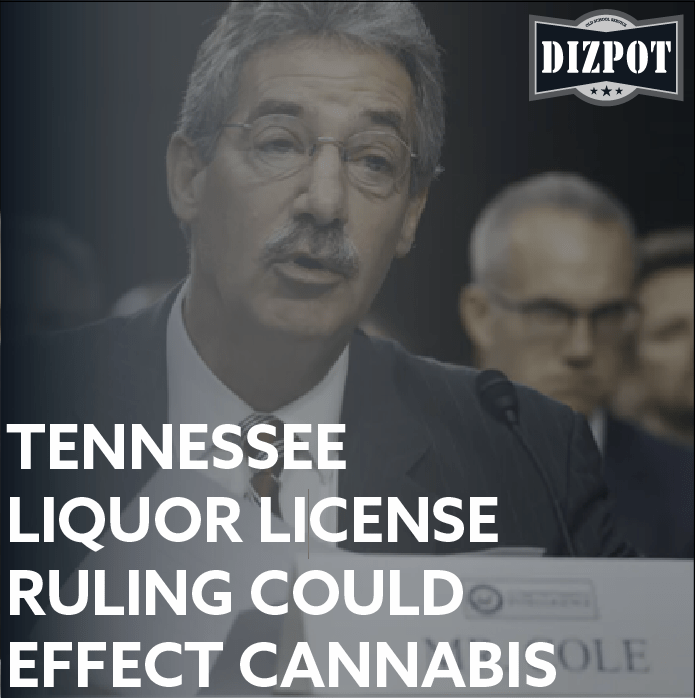The Decision:
On Wednesday, June 19th, the Supreme Court struck down a Tennessee law requiring at least a two-year residency to obtain a retail liquor license. The 7-2 ruling opens the state’s alcohol industry to chain stores like Total Wine. This decision may have deep-reaching impacts on the current legal Cannabis industry as many state laws enabling legal cannabis commerce and distribution require state residency to become licensed. While this issue remains an arm’s length from Cannabis until the federal government removes Cannabis from Schedule I of the Controlled Substances Act or creates federal policies allowing commerce.
Current Residency Requirements:
Many states with recreational marijuana have enacted laws requiring residency for a certain period before one can obtain a retail marijuana license. This type of legislation is standard in the cannabis industry, and it protects state markets from out of state influences. For example, Washington state requires a six-month residence from every employee, partner, corporation, association, and everything in-between.
These state’s rights policies are certainly intended to protect state residents during the licensing process giving them first shot at small business opportunities. At the same time, states understand that keeping these businesses small and limited to their own state boundaries gives the state the greatest tax collection benefit.
What it Means for the Cannabis Industry:
Individually, states seem to benefit from residency laws. These provide protection for small businesses and encourage growth within the local community, keeping profits from medical and recreational marijuana within the state. Additionally, these requirements are used to show compliance with the “Cole Memo” (2013) which requires recreational states to “Prevent diversion of marijuana from states where it is legal to other states.” Compliance with the Cole Memo decreases the state’s chances of federal crackdowns.
“Today’s decision reinforces the Supreme Court’s skepticism of state laws that tend to favor businesses owned by in-state residents over those owned by out-of-state individuals…”
– Steve Vladeck, CNN Supreme Court analyst.
As a packaging supplier tailored specifically for marijuana products, DIZPOT believes it is important to stay up to date on the cultural, political, and economic ramifications of the legalized cannabis markets. For more information, check out the referenced articles below.
Sources
Advance.lexis.com. (2019). [online] Available at: https://advance.lexis.com/documentpage/?pdmfid=1000516&crid=21eb78b8-8a20-468e-9d2f-0fe539ff7385&config=014FJAAyNGJkY2Y4Zi1mNjgyLTRkN2YtYmE4OS03NTYzNzYzOTg0OGEKAFBvZENhdGFsb2d592qv2Kywlf8caKqYROP5&pddocfullpath=%2Fshared%2Fdocument%2Fstatutes-legislation%2Furn%3AcontentItem%3A5TYF-BT30-004D-1398-00008-00&pddocid=urn%3AcontentItem%3A5TYF-BT30-004D-1398-00008-00&pdcontentcomponentid=234176&pdteaserkey=sr0&pditab=allpods&ecomp=k5x8kkk&earg=sr0&prid=d5a1869b-c2d8-4b94-ad65-b04a3efcb4bd [Accessed 5 Jul. 2019].
and Kate Sullivan, A. (2019). Supreme Court strikes down Tennessee residency requirement for liquor licenses. [online] CNN. Available at: https://www.cnn.com/2019/06/26/politics/supreme-court-tennessee-liquor-license/index.html [Accessed 5 Jul. 2019].
Canna Law Blog™. (2019). Feds On Recreational Cannabis. Let It Be…. | Canna Law Blog™. [online] Available at: https://www.cannalawblog.com/feds-on-recreational-cannabis-let-it-be/ [Accessed 5 Jul. 2019].
Canna Law Blog™. (2019). Marijuana Industry Residency Requirements. [online] Available at: https://www.cannalawblog.com/marijuana-industry-residency-requirements/ [Accessed 5 Jul. 2019].
Lcb.wa.gov. (2019). Marijuana Licensing FAQ | Washington State Liquor and Cannabis Board. [online] Available at: https://lcb.wa.gov/mjlicense/mj_licensing_faq [Accessed 5 Jul. 2019].
Leafly. (2019). The Cole Memo: What Is It and What Does It Mean?. [online] Available at: https://www.leafly.com/news/cannabis-101/what-is-the-cole-memo [Accessed 5 Jul. 2019].

